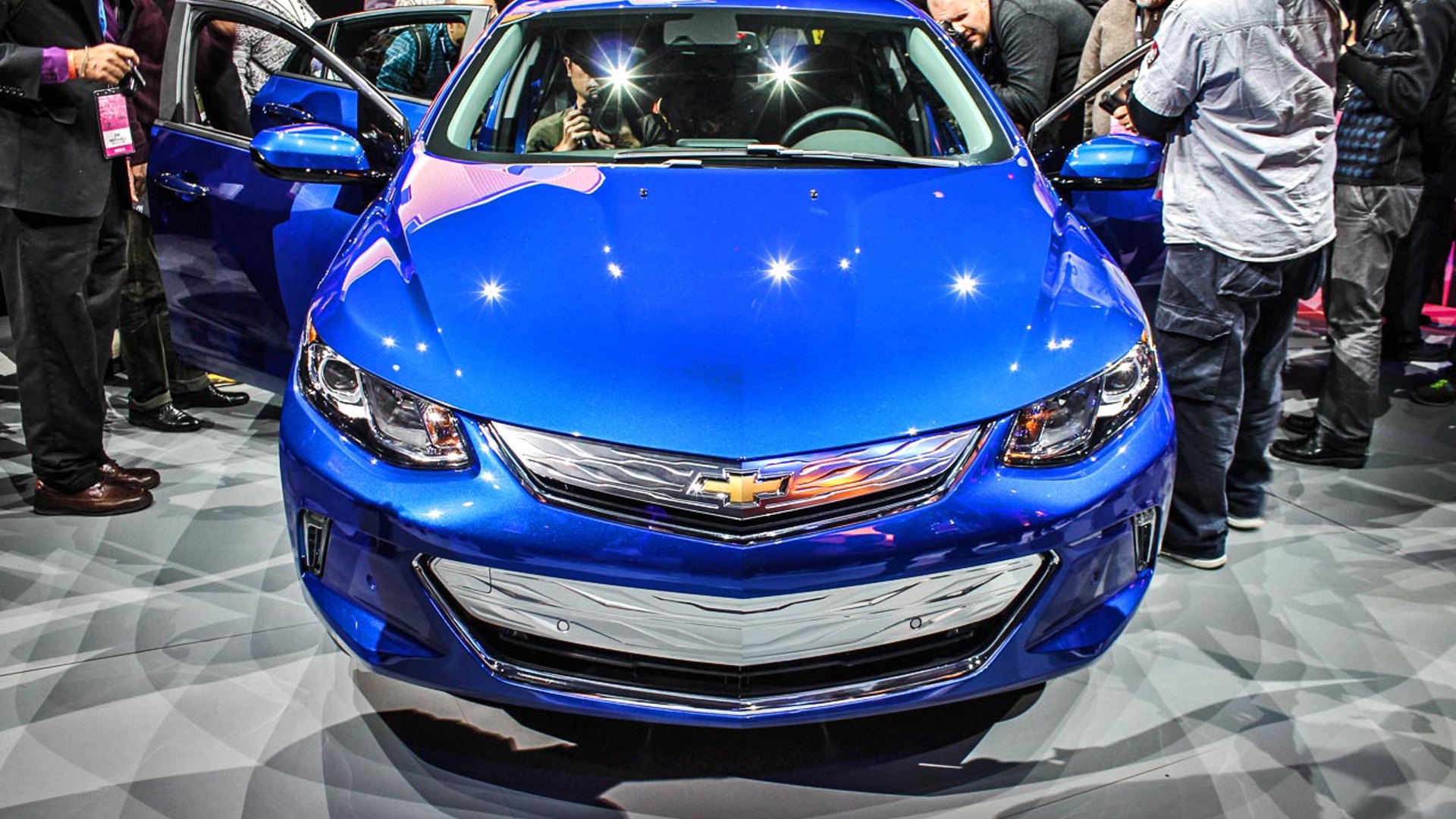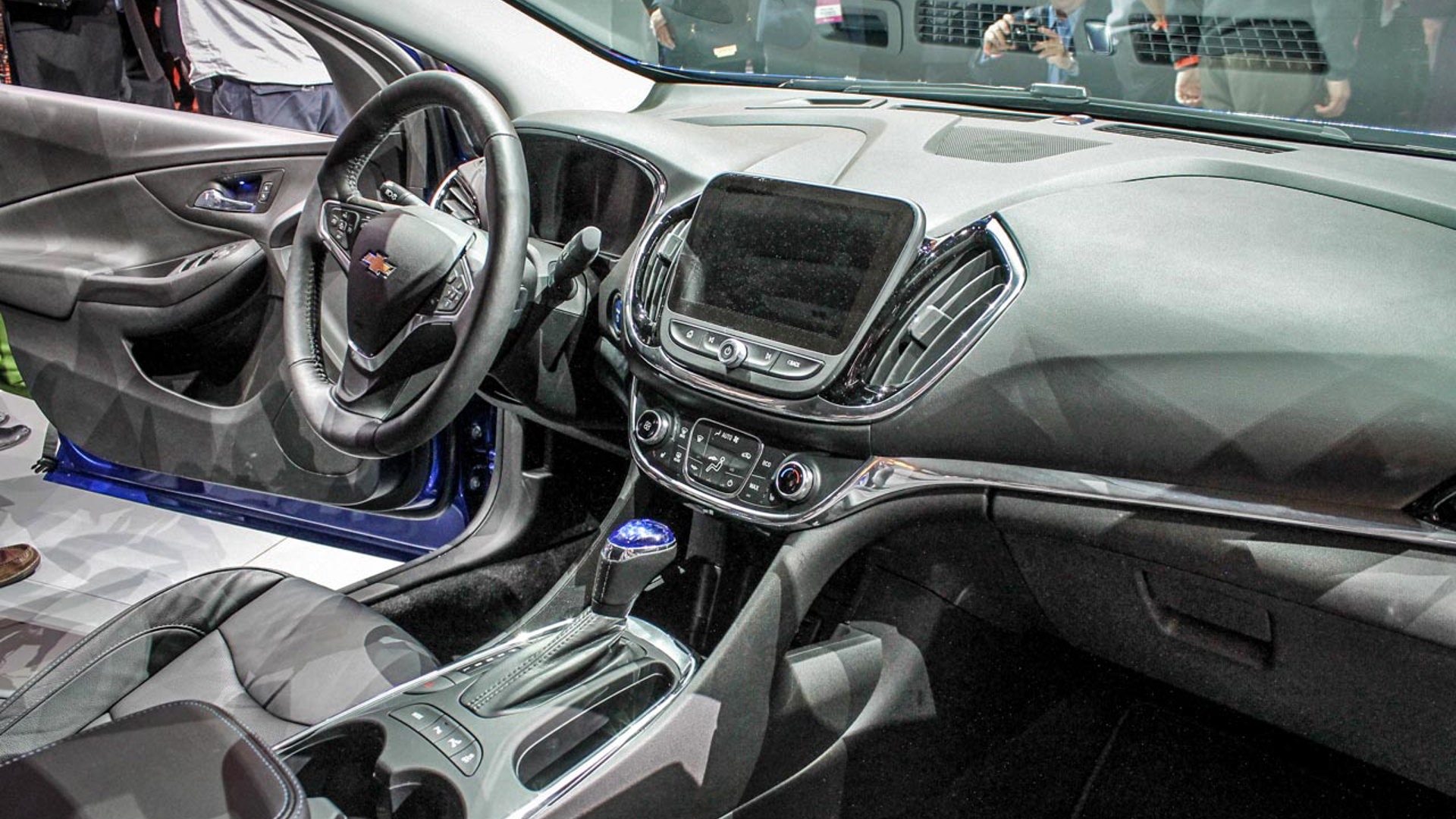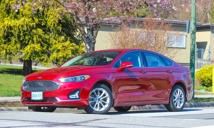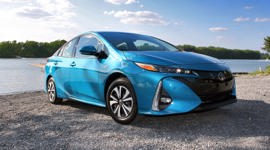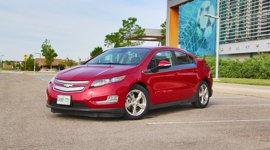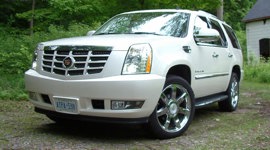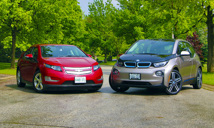More range, more power, more seats - Chevy claims the all-new 2016 Volt answers the requests of their customers, and what those customers were asking for was more. So they got it.
Looking more like a regular compact sedan than the previous, futuristic-looking machine, Chevy is taking their plug-in electric machine in a decidedly more mainstream direction, while simultaneously moving it a little upscale. It no longer looks like the wedgy science project it once was, and apart from the wavy brightwork at the grille, might well be a conventionally powered small sedan.
However, beneath the sheet metal are all kinds of nips and tucks to make the 2016 Volt lighter and more efficient while boosting power. The battery is a new 18.4-kWh lithium-ion unit that makes more juice from fewer cells, and is both less bulky and slightly lighter than the outgoing unit. The twin motor electric drive is down in weight too, about 45 kg or so, and sees a 12 percent bump in efficiency. Acceleration times are down by a half second, with 100 km/h coming in eight and a half seconds, and 0-50 km/h (more useful in city driving) down to a sprightly 2.6 seconds. That's a little more real-world zip making use of instant electric torque.
Total range when fully charged is up to a useful 80 km, which, while it falls short of EV-only vehicles like the Leaf, is likely more than enough for most urban commuters if the previous 60-70 wasn't already enough. Add in a new 1.5L four-cylinder range extender that's being hailed as smoother and quieter than the old 1.4L unit, and the new Volt has a level of flexibility that pure EVs can't match. Total range with a full charge and a full fuel tank is 675 km, and if you're travelling cross-country, you can take advantage of both quick chargers and gas stations. One more little bonus: the Volt now runs on regular-grade gasoline rather than premium.
So it's more practical, and likewise some practical choices have made their way into the cabin. First, the car is now a five-seater, thanks in part to the smaller battery pack. The middle seat in the back is not what you'd call comfortable, but it's there in a pinch to give a lift to one more friend across town.
Next, the overall dash layout is now both more conventional, and a little bit upscale. Materials used seem a little nicer, and the controls combine touchscreen displays with familiar knobs and dials for HVAC controls. It's the sort of thing to woo a more mainstream buyer, yet still hopefully appeal to those early adopters. Chevy claims the two most commonly traded-in vehicles on the Volt are the Prius (expected) and the BMW 3 Series (a surprise).
However, the launch of the Volt may find itself dealing with increased resistance in the market, because of historically low fuel prices. Sure, cheap gas is a temporary phenomenon, but that won't matter to most casual consumers, who may not be able to see the long-term benefits in purchasing a more expensive electric machine over a gasoline-powered car. As fuel prices start to rise again, GM should see more interest in their Volt from the mainstream consumer. For now, they're probably rubbing their hands with glee over the way light truck sales are shooting up.
However, there is another kind of consumer who's interested in an electric car no matter what gasoline costs. For them, a focus on reducing emissions and getting away from the less palatable side effects of petroleum production is highly important in a vehicle choice. For now, the Volt provides a flexible choice. In the near future, Chevy hopes to sell them something different: a Bolt. See, what they've done there is change the first letter. Pure conjecture: stand by for the Jolt, the Zolt, and possibly something with changeable body panels called the Molt.
The cute-looking Bolt all-electric city car shown here in Detroit looks an awful lot like an i3, except without the Bimmer's awkward ungainliness. The LED grille silhouette is a nice touch, as is the all-glass rear, reminiscent of the old CRX. The interior appears to have plenty of passenger space, despite the compact dimensions, and there's a cohesiveness to the futuristic interior that you wouldn't find in a Tesla.
Speaking of Tesla, the Bolt's 320-km range is pretty close to that offered by a mid-level Model S, and with a projected price of around $30,000 in the US, this little car could steal away some practicality-minded EV buyers, if not the prestige-obsessed ones. Please note, that's the price Chevy is projecting after tax rebates, which may or may not exist in your area by the time the Bolt is released.
As far as production goes, little would be needed to put this car to market, and Chevy's indicating a 2017 model year release as a maybe. By that time, surely, we'll likely see the price of oil creeping up, and the public will be ready to once again trade in their fuel-guzzling rigs for something more electrified.
